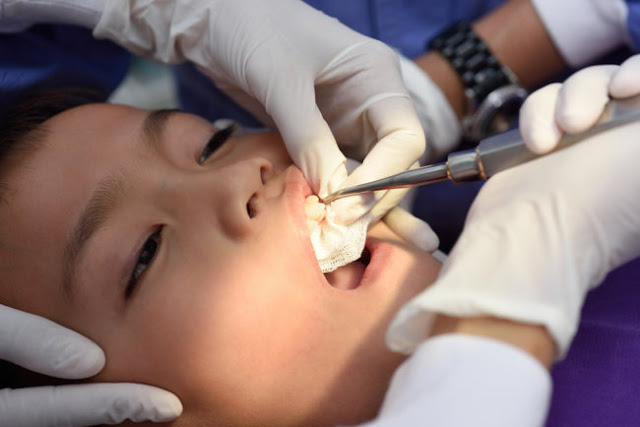First time pregnant, do this pregnancy check up
During pregnancy, Mother will be offered a variety of antenatal care tests to check and assess progress, ensure the well-being of the mother and baby, and see certain health conditions. The core purpose of the test series is to support pregnancy. Mother can walk safely.
Not all tests need Mother to do. Mother can discuss this decision with the doctor regarding the need to undergo certain tests. Blood tests for syphilis or HIV infection do not need to be done if you believe there is no risk of these diseases. But apart from that, it's important to understand the purpose of all tests so that you can make the decision to do the test.
Let's look at some of the following pregnancy checks.
Physical examination
The doctor will check the Mother's Body Mass Index (BMI) based on height and weight. IMT measurements are needed to determine the recommended body weight so that you can have a healthy pregnancy. Most pregnant women experience weight gain of 10-12.5 kg. The reason is the baby who continues to grow big and the body's natural response in storing fat to produce breast milk (ASI) after giving birth. Most of the proportion of body weight gain occurs after 20 weeks of pregnancy. In addition to BMI, the doctor will also measure blood pressure, heart rate, respiratory rate, and conduct a complete physical examination. The doctor will check for any medical conditions that have not been diagnosed. The doctor will also examine the vagina and cervix or cervical opening. Changes in the cervix and uterine size can help confirm the stage of pregnancy of the Mother. In addition, you may need to undergo a pap smear test as part of cervical cancer screening, depending on when your last pap smear test is.Laboratory test
Blood checks are usually done at the first prenatal examination. Blood checks include examination of blood groups and rhesus, hemoglobin (hb), blood sugar, and screening for hepatitis B, syphilis, and HIV.Blood type and rhesus blood
Check blood type and rhesus blood, you need to live it. The goal is to know the blood type to anticipate if you later need a blood donor. In addition, it is necessary to check whether your rhesus is negative or positive, and whether rhesus is the same as your father's.
Pregnant women who have rhesus negative may need to undergo extra treatment to reduce the risk of rhesus disease. This is because pregnant women with negative rhesus can contain babies who have positive rhesus if the father has rhesus positive.
Of particular concern is when the baby's blood enters the mother's bloodstream during pregnancy or childbirth. In these conditions, Mother will produce antibodies to fight rhesus positive cells from infants. This condition usually does not affect the first pregnancy, but the second pregnancy, when the immune response of the mother's body to rhesus positive will be greater and will produce far more antibodies.
These antibodies will break through the placenta and destroy fetal blood cells, causing a condition called rhesus disease or hemolytic disease in newborns. As a result, babies can experience anemia and / or jaundice (jaundice).
Hemoglobin (hb)
Hemoglobin is an iron-rich protein found in red blood cells. Hb allows cells to distribute oxygen throughout the body and transport carbon dioxide from the entire body to the lungs. Low Hb is a sign of anemia, which is a deficiency of healthy red blood cells.
Blood sugar
Blood sugar tests will be carried out for pregnant women who are suspected of having a high risk of developing diabetes. In addition to the blood sugar test, other tests may also be offered.
Pregnant women can have a higher risk of developing diabetes during pregnancy (gestational diabetes) if they are overweight (obese), have a history of diabetes in a previous pregnancy, or have a family with diabetes.
Screening for hepatitis B, syphilis, and HIV
This test is recommended to protect Mother's health through treatment and early treatment and reduce the risk of transmission to infants, partners or other family members. This test is done at around 2-3 months of gestational age.
Antenatal Urine Test
During the antenatal examination, Mother will be asked to provide a urine sample. The aim is to check the contents, whether there is a protein or albumin content. If so, that means you have an infection that needs to be treated. This can also be a sign of preeclampsia. Preeclampsia can cause a variety of problems, including seizures. If left untreated, there is a risk of threatening safety. Preeclampsia can also have an impact on the growth and health of infants. Don't ignore this condition, although women with preeclampsia usually feel fine.Ultrasonography (USG)
Ultrasound imaging (USG) examination is offered at least three times, namely in the first trimester (weeks 10-14), second trimester (weeks 18-20), and third trimester (week 32).First Trimester
Ultrasound examination in the first trimester aims to determine gestational age, detect whether there are twin fetuses, as well as part of screening for Down syndrome or other conditions of chromosomal abnormalities.
Second trimester
The second trimester examination aims to check whether there are congenital abnormalities or structural abnormalities, for example abnormalities in the heart, kidneys, or neural tube defects.
Third Trimester
While the ultrasound examination in the third trimester is done if the placenta is above the cervical bone. Ultrasound examination aims to detect the possibility of the condition of placenta previa.



Komentar
Posting Komentar